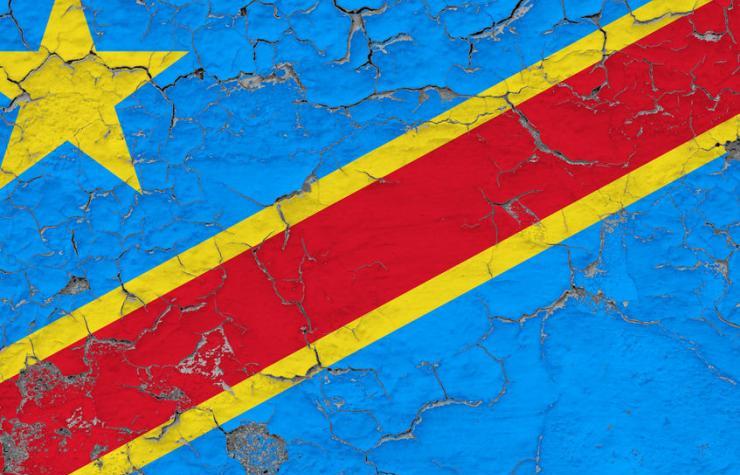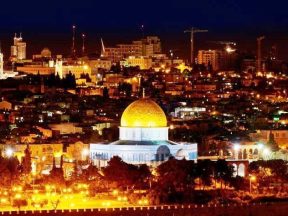DR. Congo. Kabila’s puppet cuts its strings.

In a spectacular turnaround, the former President Kabila who was still in control of the institutions through proxies two years after the Presidential election, has been eventually side-lined. Tshisekedi whom he helped to become President after a rigged election has managed to outflank him while the West applauds despite the use of unconstitutional methods.
Until recently, President Felix Tshisekedi Tshilombo was still considered as his predecessor’s puppet. It is an open secret that he was the beneficiary of the rigged election of December 2018.
Just after it, a deal was struck between the outgoing President Joseph Kabila and himself to that effect, after the former President realised that his candidate, Emmanuel Ramazani Shadary would not be tolerated by the Congolese citizens.
In compensation, Tshisekedi was left with the honours, the pump and the glory of the presidency while the government was dominated by the kabilists who retained the Prime minister’s job and 42 of the 66 portfolios. In addition, CENI secured a majority of 388 seats in the National Assembly for Kabila’s Joint Front for Congo coalition (FCC) and another of 98 seats out of 109 in the Senate. As for the presidency, detailed results by constituency were never released.
But hardliners of Tshisekedi’s Union for Democracy and Social Progress (UDPS) became increasingly frustrated with this situation which left their leader toothless. The climate turned particularly bitter when the UDPS president, Jean-Marc Kabund was dismissed from his job of vice-chairman at the National Assembly on the 25 May 2020 by FCC MPs, after he refused to convene the Congress to declare the state of emergency to fight the Covid pandemics. Since that moment, the situation didn’t stop to deteriorate. On the 23 July, a FCC demonstration of support to the government was attacked by UDPS militants in Kinshasa who suspected the kabilists to plan another rigging of the next presidential election, scheduled for 2023. Tshisekedi began appointing judges and army generals and sacked one of Kabila’s closest commanders, Gen. John Numbi, who is under EU and US sanctions, without the approval of the pro-Kabila Prime Minister, Sylvestre Ilunga Ilukamba as required the constitution. But Felix Tshisekedi moved on. On the 21 October, three judges appointed by him took their oath at the Supreme Court despite objections that the nominations were not valid because neither the Prime Minister or the Supreme Council of the Judiciary had been consulted.Then on the 23 October, President Tshisekedi announced the opening of national consultations with all the political parties in order to find a new political majority.
Unsurprisingly, on the 6 December 2020, he announced the end of the coalition with the pro-Kabila forces in a public speech and the creation of a new coalition the Sacred Union of the Nation.
This speech was the start of the final battle. After the Speaker of the National Assembly, Jeanine Mabunda’s decision to prevent MPs to vote a petition against her, on the 7 December 2020, a group of UDPS MPs and their supporters stormed the parliament, destroyed the Speaker’s office and the hemicycle. There was a fight between the FCC and UDPS MPs and their supporters and several MPs were injured. Two days later, a majority of 281 MPs voted in favour of Jeanine Mabunda’s dismissal.
Several causes can explain why so many FCC MPs decided to cross the floor and change their party allegiance. Many of them were afraid to lose their seat after President Tshisekedi threatened to dissolve the parliament to find a new majority. The threat was taken seriously because these MPs were aware that they did not owe their seat to a transparent election but to a massive rigging, comments Marie-France Cros, from the Brussels daily La Libre Belgique.

Mike Hammer, US ambassador to the D. R. Congo. In the Congolese capital, people are cracking jokes like “there are five institutions in Congo: the president, the parliament, the government, the judiciary and Mike Hammer”.
On the 1st December 2020, several FCC MPs accused the Presidential side to have tried to bribe them. Nevertheless, a majority of them voted in favour of Jeanine Mabunda’s dismissal. Between the 10 and the 13 December 2020, several parties of the FCC coalition defected to the Presidential side, including the Unified Lumumbist Party created by the late PM Antoine Gizenga, the United Block for the Renaissance and Emergence of Congo created by the former governor of North Kivu, Julien Paluku and the Republican Party created by the former Senate Speaker, Léon Kengo wa Dondo.
After this haemorrhage, a motion of no confidence was voted on the 27 January against Prime Minister Ilunga by an overwhelming majority of 367 votes at the National Assembly, which led to his resignation. By end January 2021, the pro-Tshisekedi coalition which only gathered 47 MPs in November 2020, as against 341 for the FCC and 112 for the Lamuka coalition, had swollen to 391 MPs. Then, on the 4 February, 64 senators voted to dismiss the senate speaker, Alexis Thambwe Mwamba.
Tshisekedi’s determination to reduce Kabila’s influence in the Congolese institutions was encouraged all along the crisis, by the unconditional support of the US ambassador in Kinshasa, Mike Hammer. In the Congolese capital, people are cracking jokes like “there are five institutions in Congo: the president, the parliament, the government, the judiciary and Mike Hammer”.
Such enthusiastic support, following cautious comments from the State Department expressing “legitimate concerns” about the transparency of the December 2018 presidential and parliament elections, is based on the assumption that Tshisekedi would better serve the interest of the West. Kabila is indeed seen in Washington as the man who allowed the Chinese to reap strategic cobalt and copper mining deposits and who amended in 2018 the Mining Code to increase taxes on exports of mining products.
By contrast, in his first state of the nation speech, on the 13 December 2019, Tshisekedi paid a special tribute to the international community and in particular to the US, the EU and the UK.
After the sacking of Kabila’s close friend, General John Numbi, which Mike Hammer applauded on the social media, the US announced the resumption of their military cooperation with the DRC, which will include training, supplies of equipment and intelligence. Such support could be badly needed.
In South Kivu alone, between the 1st February and the 31 August 2020, 171 assassinations and 277 kidnappings were reported while on North Kivu, since November 2019, 800 civilians were killed by the Ugandan-born jihadist group ADF NALU guerrillas, according to UN sources.
Violations of Tshisekedi’s rivals’ political rights or to the poor governance record of his appointees don’t really seem to matter. Western embassies didn’t comment when a march of Kabila’s supporters was banned in Kinshasa on the 5 February 2021. Likewise, they ignored a Ministry of Finances’ report on the 2019 budget expenditures, which showed that Tshisekedi’s appointee, Foreign minister, Marie Ntumba Nzeza spent 445% more than the initial budget allocated to her ministry and that the President’s office spent four times more than its initial budget. In a report from the 4 January 2021, the pro-governance NGO OGEDEP concluded that “there has not been any improvement in 2019. On the contrary, governance went from bad to worse.”
Tshisekedi’s entourage had nevertheless been involved in a major scandal. On the 20 June 2020, his main ally during the presidential campaign, the president of the Union pour la nation congolaise, whom he had appointed as head of the President’s Office, Vital Kamerhe, was sentenced to 20 year prison on embezzlement, corruption and money laundering charges.
François Misser








